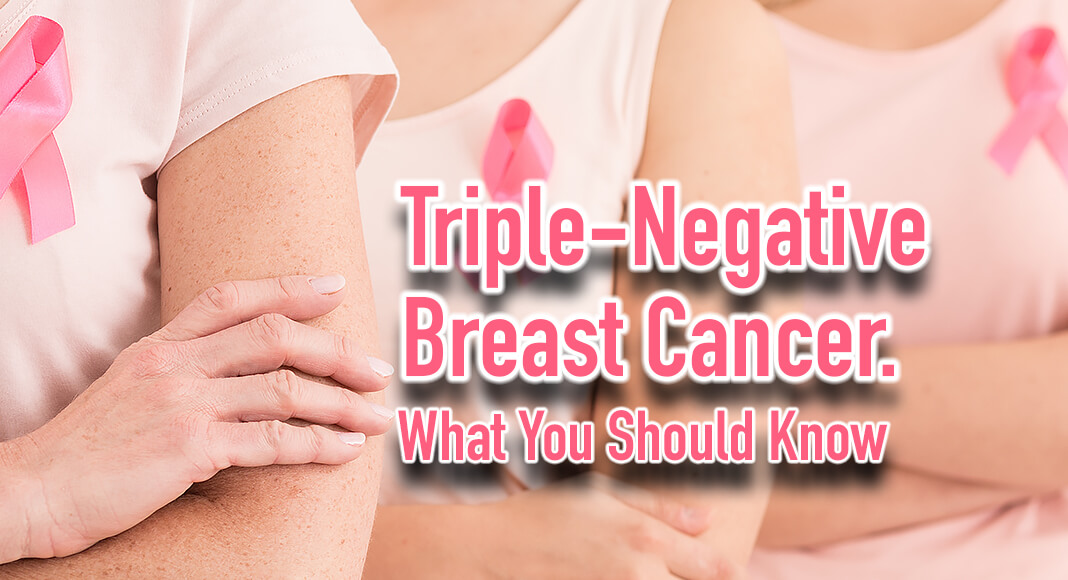
Mega Doctor News
What Is Triple-Negative Breast Cancer?
Triple-negative breast cancer is a kind of breast cancer that does not have any of the receptors that are commonly found in breast cancer.
Think of cancer cells as a house. The front door may have three kinds of locks, called receptors—
- One is for the female hormone estrogen.
- One is for the female hormone progesterone.
- One is a protein called human epidermal growth factor (HER2).
If your cancer has any of these three locks, doctors have a few keys (like hormone therapy or other drugs) they can use to help destroy the cancer cells.
But if you have triple-negative breast cancer, it means those three locks aren’t there. So doctors have fewer keys for treatment. Fortunately, chemotherapy is still an effective option.
How Is Triple-Negative Breast Cancer Treated?
Often, patients first need to have the lump removed (a lumpectomy) or the entire breast removed (a mastectomy). Then they have chemotherapy treatments to target any cancer cells that can’t be seen—cells remaining in the breast or that may have spread into other parts of the body. Sometimes doctors recommend chemotherapy before surgery to shrink the cancer.
Lumpectomy
With lumpectomy, a surgeon removes the lump from your breast. He or she also removes nearby lymph nodes (the little oval-shaped organs that are part of your immune system) to see if the cancer has spread. The surgery takes an hour or two. Most women spend the day at the hospital and usually do not need to stay overnight.
Mastectomy
For a mastectomy, your surgeon removes the breast and nearby lymph nodes to see if the cancer has spread. Some women choose to have breast reconstruction during the same surgery.
Radiation
Lumpectomies are usually followed by radiation therapy. This is where high-energy radiation is given to your breast to kill any remaining cancer cells. It usually takes about 20 minutes per day. Most women go in four to five days a week for about six weeks. You’ll see a radiation doctor to have this done.
Chemotherapy
Cells from the cancer may have spread somewhere else in your body. The goal of chemotherapy is to kill those cancer cells wherever they may be. Chemotherapy lowers the chance that your cancer will grow or come back.
What Are Some Common Side Effects of Treatment?
Hair Loss
You may lose some or all of your hair within about two to four weeks of starting chemotherapy. New treatments may help with hair loss, so ask your doctor about that if it’s a big concern for you. Your hair will grow back starting around four to six weeks after your last chemotherapy treatment.
Nausea
Most women feel sick and exhausted for a day or two after each chemotherapy treatment. If you feel queasy, your doctor can give you a prescription for medicine to treat the nausea.
Tiredness
You may feel tired or have problems with thinking and remembering things after chemotherapy and radiation therapy. Most of those side effects go away a few weeks after therapy ends.
Lymphedema
If you have lymph nodes removed during surgery, or if you receive radiation treatment to your lymph nodes, the lymph fluid may not be able to drain properly. This may cause the fluid to build up under your skin and cause part of your body to swell. This condition is called lymphedema.
Skin Changes
Where you’ve been treated with radiation, your skin may change color or peel, kind of like a sunburn. Your doctor will tell you the best way to treat these skin changes.
Do I Need Genetic Counseling and Testing?
Your doctor may recommend that you see a genetic counselor. That’s someone who talks to you about any history of cancer in your family to find out if you have a higher risk for getting breast cancer. The counselor may recommend that you get a genetic test.
If you have a strong family history of breast cancer, you may have changes in your genes that increase your risk of getting breast cancer and other cancers. For example, people of Ashkenazi Jewish heritage have a higher risk of inherited genetic changes (mutations) that may cause breast cancers, including triple-negative breast cancer.
If you have a higher risk of getting breast cancer, your doctor may talk about ways to manage your risk.









